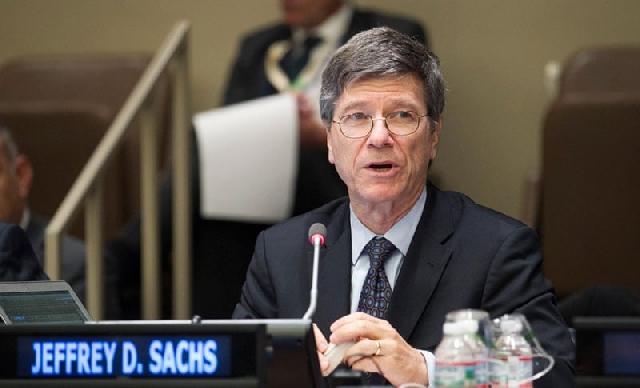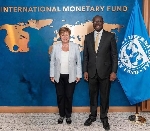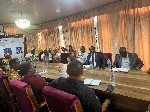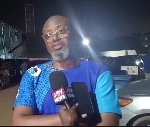Jeffrey Sachs: ‘US, Europe never been reliable partners for Africa’
 Jeffrey Sachs
Jeffrey Sachs
Here, he expounds on how the African Union, the BRICs and other continental bodies must lead the push towards a new financial architecture for developing countries.
Reschedule the debts of African countries over a period of 30 years, at a relatively low rate of 4%; tax rich countries for their “historical responsibility for climate change”, but also for “stealing Africa’s resources”: The American economist Jeffrey Sachs, a professor at Columbia University, where he heads the Center for Sustainable Development, has made a name for himself in the international economic community with his direct and often bold formulas.
The former special adviser to the secretaries-general of the United Nations (from 2001 to 2018) and author of the best-selling The End of Poverty (2005) is renowned for his role in implementing macroeconomic shock therapy in developing countries.
He is also a specialist in the fight against world hunger, illiteracy and, more recently, environmental degradation.
In his latest book, published in December 2022, Ethics in Action for Sustainable Development, which he co-wrote with several academics, Sachs offers an in-depth conversation between religious leaders of different faiths and interdisciplinary researchers and practitioners, in search of an ethical consensus on how to achieve the Sustainable Development Goals (SDGs).
In this interview, the champion of the market economy gives his diagnosis of the state of the continent and its prospects – for Africa in a globalised world, and tackling its own challenges.
Jeffrey Sachs: The world is lagging far behind in achieving the SDGs. The main question is one of finance. The SDGs are an investment agenda, in education, healthcare, zero-carbon energy, sustainable agriculture, urban infrastructure and the digital economy. These six investment categories cost money, but the poorer half of the world – the low-income and lower-middle income countries – needs much more financing to achieve the SDGs.
We need a fundamental overhaul of the global financial architecture. The African Union’s membership in the G21 [it was admitted as a new member in 2023] will be very important in negotiating a new financial architecture, so too will be the BRICS [a partnership of leading emerging markets and developing countries].
You see it as positive, then, that the BRICS decided to enlarge its sphere of countries in Johannesburg in 2023?
I’m a strong supporter of the BRICS. I do hope that they can work well together, especially China and India, because if so, the BRICS will help to make a much fairer world.
How can African nations balance economic development with the need for environmental sustainability, especially in the face of climate-change challenges?
Africa needs substantial financing for losses and damages and for adaptation. This should come in the form of payments from the rich countries, funded by global taxes on carbon emissions of the rich countries. The Losses and Damages Fund has now been established. The US put in $17.5m, equal to nine minutes of Pentagon spending. The US arrogance knows no bounds. The US should be taxed for around $25bn per year, roughly $5 per ton of CO2 emission.
In your view, what role does foreign aid play in fostering economic development in Africa?
Foreign aid plays a modest role. There is far too little financial support from rich countries. Rather than call it aid, these rich countries should be taxed in line with their historical responsibility for climate change and for the abuses of the global system – such as stealing Africa’s resources and the sins of colonialism, regime-change operations, political assassinations such as those of Lumumba, Gaddafi, etc., by the US and European powers.
According to the World Bank, $1.5trn of public development aid has gone to Africa since 1960. How can this aid be optimised for more effective outcomes?
As I was saying, the global financial architecture needs a massive renovation so that capital flows from rich to poor countries. Part of this will be to reduce the dominant role of the US dollar in global transactions. BRICS will help make that happen.
Africa needs two main things: internal unity as the African Union, and good diplomatic relations with China, India, the Arab states and Latin America.
You are known for your uncompromising position on the Bretton Woods institutions, in which you worked at the end of the 1990s. Do you think the will to change that the World Bank and IMF expressed in Marrakech in October 2023 is genuine?
The US is resisting real reform of the IMF and the World Bank because real reform would mean that China, India, Russia and other countries would gain much more voting weight. Europe would lose its voting weight, the US would lose its veto power. These changes will come to the international system, one way or another.
What do you think of the fact that more and more African countries are breaking off their historical attachments to the West (the US and Europe mostly), to the benefit of Russia, for example?
I think that Africa needs two main things. First, internal unity as the African Union, with a single market and with physical infrastructure (roads, rail, fibre, power grid) that connects all parts of Africa internally. Second, Africa needs good diplomatic relations with China, India, the Arab states and Latin America.
The US and Europe have never been reliable and robust partners for Africa. Too much greed, self-interest, and taint of imperial legacy. Perhaps that will change. It needs to change.
Debt is one of the greatest challenges for Africa in 2024. What strategies do you recommend for sustainable debt management and relief to promote economic stability and growth?
All debts on the books of debt-distressed countries should be extended for 30 years at a 4% fixed interest rate (in USD). This should apply to debts owed to the World Bank, IMF, regional development banks, and bilateral creditors. Wherever possible (depending on the terms of collective action clauses) countries should also restructure their private bonds for 30-year maturities. In the future, all development finance should be at maturities of at least 30 years.
Do you think, as the World Bank does for example, that 2024 will be the year of debt default in Africa? After Zambia, Ghana… There are some risks in Egypt, Somalia, Tunisia etc.
As I have said, all of these countries should have their debts restructured for at least 30 years.
At the same time, sub-Saharan Africa is preparing for a slight uptick in economic growth this year. How can African economies leverage technology and innovation to spur growth and address issues such as unemployment and income inequality?
Every African country that does not yet have one should immediately establish a National Science and Technology Fund to support at least 1% of GDP in research and development. That should be true in the poorest as well as the richest countries.
Africa needs an education renaissance. This starts with educational opportunity – at public expense – for every child.
The African Union should establish a fund at the union level also at the scale of at least $25bn per year at the start. Africa needs to undertake its own R&D on a wide range of topics: AI, disease, ecology, climate, agriculture, and more.
Given the recent experience with the Covid-19 pandemic, what steps should African nations take to strengthen their healthcare systems and enhance pandemic preparedness?
Africa’s healthcare system should be based on community health delivery, with community health workers bolstered by AI and digital systems.
Telemedicine can greatly strengthen service delivery. Expatriate doctors in Europe and the Middle East should come back to Africa part of the year for public service.
Isn’t that rather idealistic?
I’d go even further: the taxes they pay in the US, Europe, and Middle East should be remitted to Africa to help cover healthcare costs.
What role does education play in economic transformation, and how can African nations improve their education systems to meet the demands of a rapidly changing global economy?
Education is the single most important investment for Africa. The basic standard should be this: 100% of children should complete upper-secondary education. At least 30% of children finishing upper-secondary education should go on for a bachelor’s degree. Africa needs an education renaissance. This starts with educational opportunity – at public expense – for every child. African countries should take on new long-term debt if necessary to ensure universal secondary education.
Youth unemployment is a significant challenge in many African countries. What strategies do you recommend to create meaningful employment opportunities for the youth?
Education and skills and then a dynamic economy to hire well-educated and high-skilled youth in both public and private sectors. The key, though, is skilling.
The private sector should also participate in the continent’s economic development. What policies would encourage responsible business practices on the continent?
The private sector will expand rapidly and dynamically under four conditions: a well-trained labour force; good infrastructure, notably power, digital, water, rail, and roads; a single African market, in which goods can be shipped quickly and tariff-free across Africa; and open investment relations with China, India, Latin America, Turkey, and the Arab Nations and with the BRICS.
To what extent do you believe regional integration and cooperation among African nations are critical for sustainable economic development?
African unity is essential. Africa is 1.4 billion people, and will be around 2.5 billion people by 2050. This is an enormous, young, dynamic market. A single market will be a great – indeed vital – propellant of Africa’s development in the future.
In this context, how can African economies ensure that economic growth is inclusive, benefiting a broad spectrum of the population and reducing income inequality?
Here again, there are several key conditions: universal access to quality education; universal access to public healthcare; universal access to quality urban infrastructure; a robust pension system for retirement income; peace; an end to discrimination against women and against minority groups; and social protection for families with young children, disabled, indigent, and elderly populations.
Africa’s trajectory during 2023-2063 can be like China’s during 1980-2020. Africa has the makings of a fast-growth period.
All of this requires a robust budget and solid tax collections, as well as payments by the rich countries commensurate with their historical obligations.
Doesn’t the digital economy also have a role to play in fostering financial inclusion and economic empowerment in Africa? What policies can facilitate this transition?
The digital economy is the great equaliser in global development. India is booming as it deploys digital technologies – for payments, government services, education, healthcare and other activities.
Africa needs a solid fibre network, strong connectivity with the global backbone, 5G and an AU leadership that strongly supports the digital economy.
What strategies do you recommend for African nations to recover economically from the impacts of the Covid-19 pandemic and build resilience against future crises?
Africa needs a 40-year plan, 2023-2063 to become a high-income region by 2063, and a major part of the world economy. This is possible. Africa’s trajectory during 2023-2063 can be like China’s during 1980-2020. Africa has the makings of a fast-growth period. To achieve this, Africa needs to move to a high-investment mode along the six priority areas that I outlined earlier. Education and skills will be the most important engines of Africa’s economic dynamics.
Agriculture is also an important sector for many African economies. How can these nations achieve agricultural transformation to enhance food security and contribute to economic growth?
Agriculture is now a high-skill, capital-intensive, information-intensive, sector. Africa needs to deploy mechanisation, artificial intelligence, big data, irrigation, new crop varieties, etc., to upgrade agriculture. The share of the workforce that is in agriculture will plummet as machines and AI replace low-skilled agricultural workers. That’s okay. The future of most jobs is in cities, not in rural areas. Africa will urbanise very rapidly in the future.
How can African nations address issues of corruption and improve governance to create an environment conducive to sustainable economic development?
The key to corruption is transparency, online government systems, digital economy, and trained civil services. Also, the multinational companies need to pay their taxes honestly. Much of the corruption is in the mining and hydrocarbons sector. Special attention should be paid to these international sectors as they are very abusive and pay large bribes to government officials.
Source: Theafricareport.com
Trending Business

GOLDBOD Jewellery unveils festive Christmas and New Year collections
18:17
Importers and Exporters Association kick against planned introduction of AI system at Ghana's ports
11:47
TDC unveils vision for Oxygen City development in Ho
09:59
First Atlantic Bank PLC marks major milestone with oversubscribed IPO and upcoming GSE listing
08:51
IMF unlocks US$380 million disbursement for Ghana under ECF
00:42
GIPC boss outlines government’s key economic priorities for 2026
15:40
GIPC call stronger investment partnership with Suriname
15:32
Non-performing energy sector heads to be sacked -Energy Minister warns
13:14
Insurance brokers do not face trust issues with insurers – Shalbu Ali
12:11
IBAG reflects on a “mixed year” as industry records major wins
11:46



